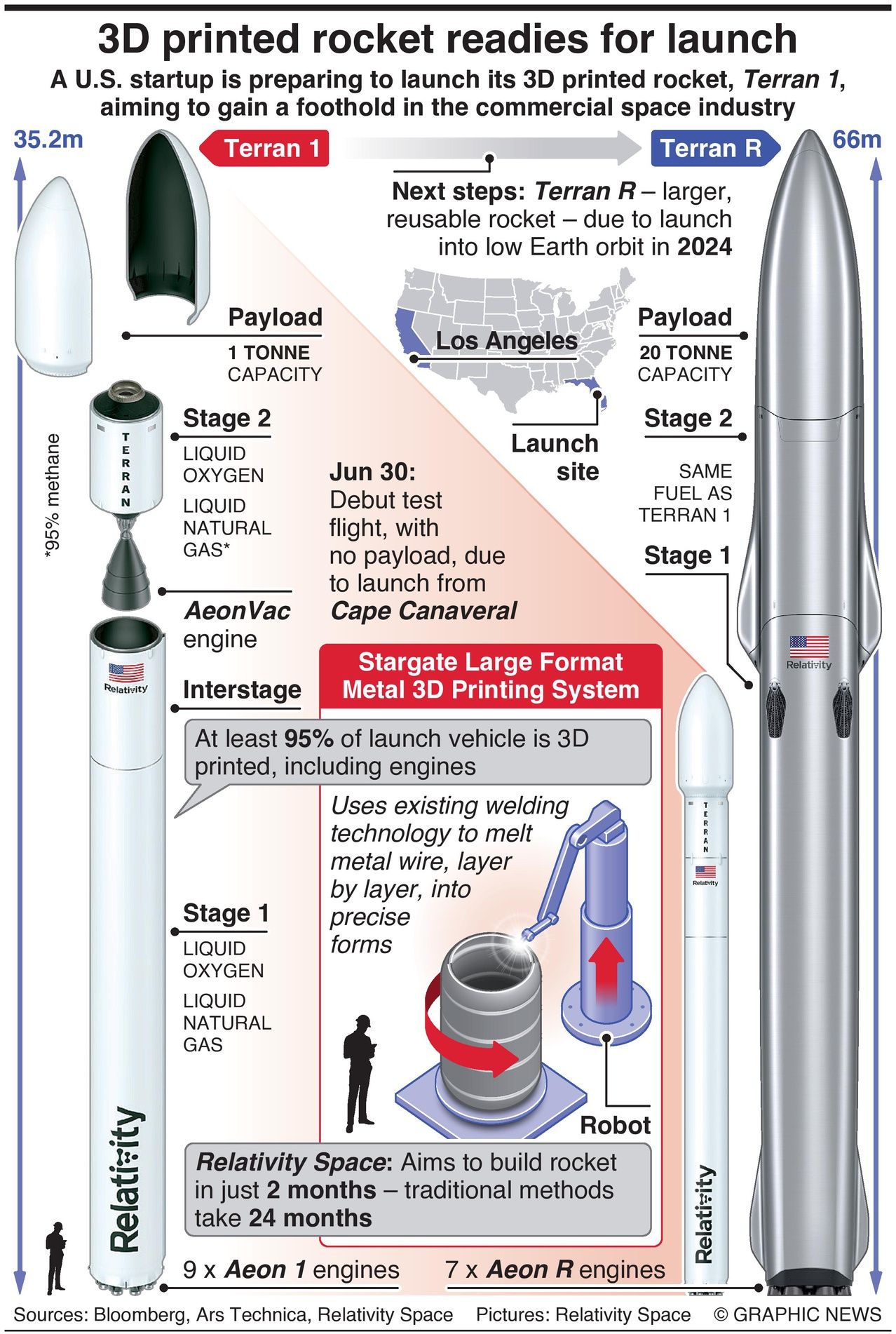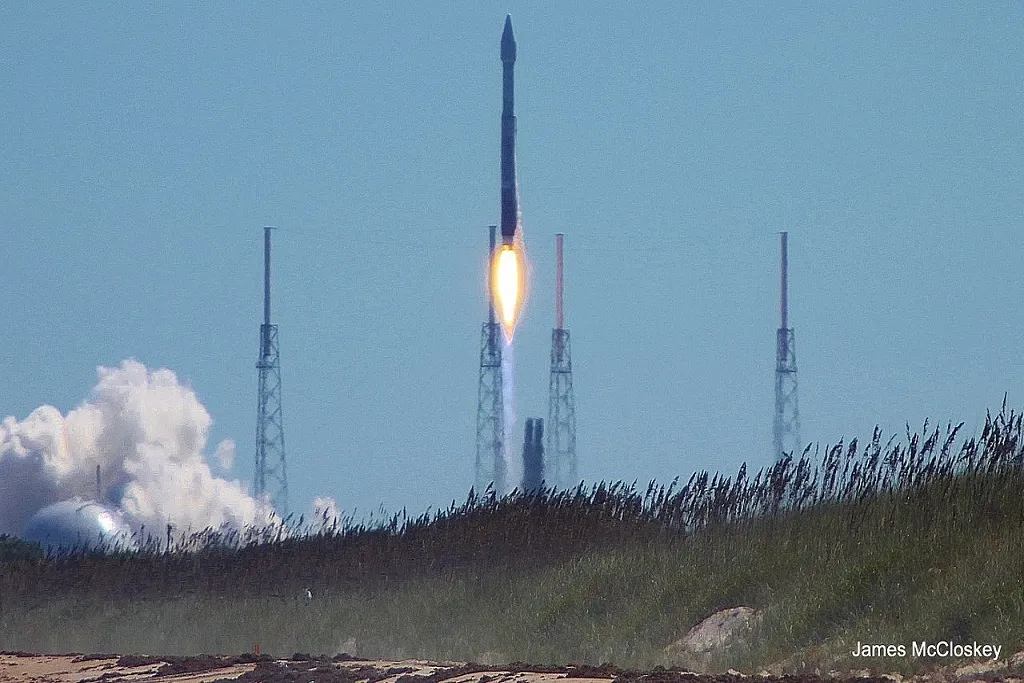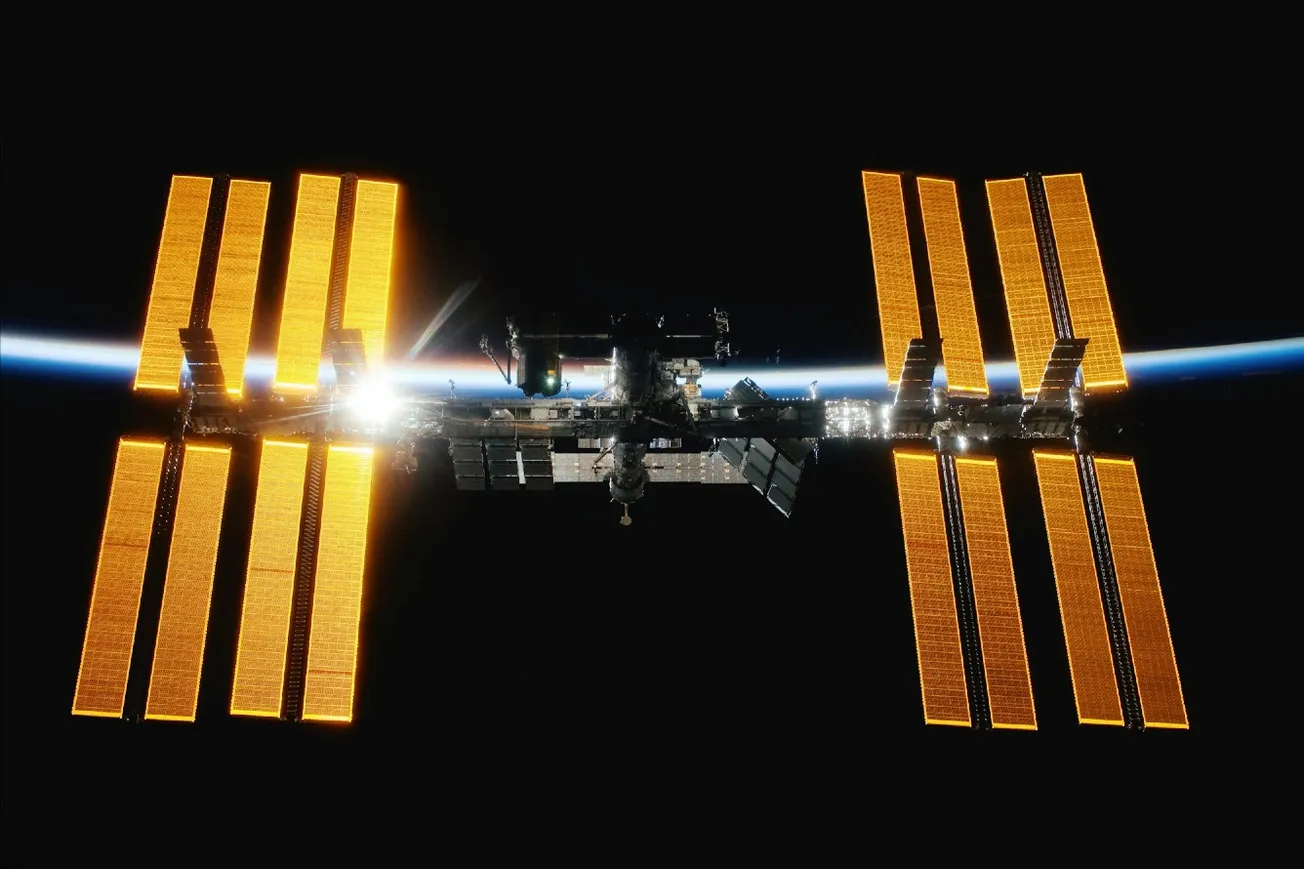
Relativity Space is a Los Angeles aerospace startup that builds rockets using advanced 3D printing technology.
Its debut rocket, the Terran 1, has completed pre-launch testing, ahead of a planned launch window beginning June 30. Originally intended to be ready by 2020, the project is running about 18 months behind schedule.
The first rocket launch will carry no cargo and is purely a test flight. If successful, a second flight will carry a NASA payload – it is capable of lifting up to one tonne into low Earth orbit.
The Terran 1 is an intended stepping stone on the way to realizing the Terran R, a reusable rocket currently under development, capable of carrying 20 times the cargo of the Terran 1, when it launches in 2024.
In order to 3D print large components, Relativity Space has created “Stargate” – a system that it claims is the world’s largest 3D printer of metals.
It uses existing welding technology to melt metal wire, layer by layer, into precise and complex structures that have minimal joints and parts.
The company says it will eventually be able to build an entire rocket (95% of which is 3D printed) in two months. Traditional methods of construction take 24 months and use 100 times as many









